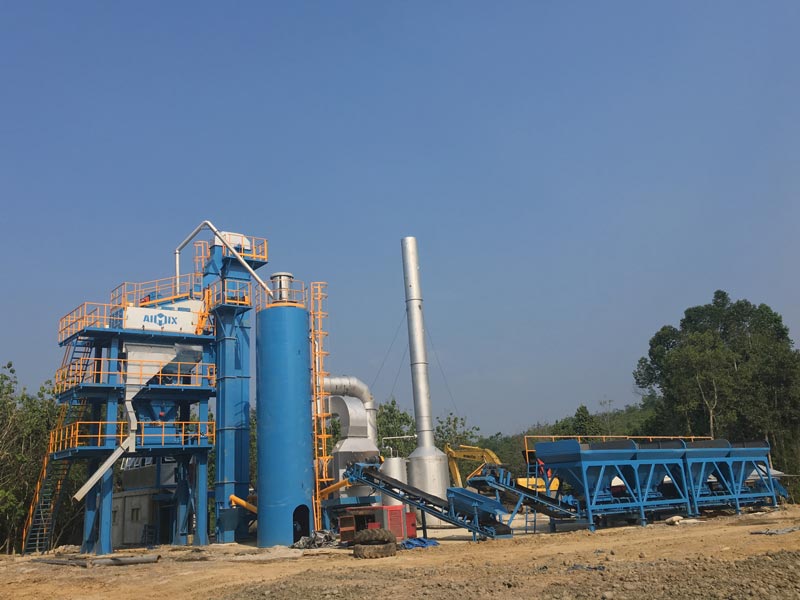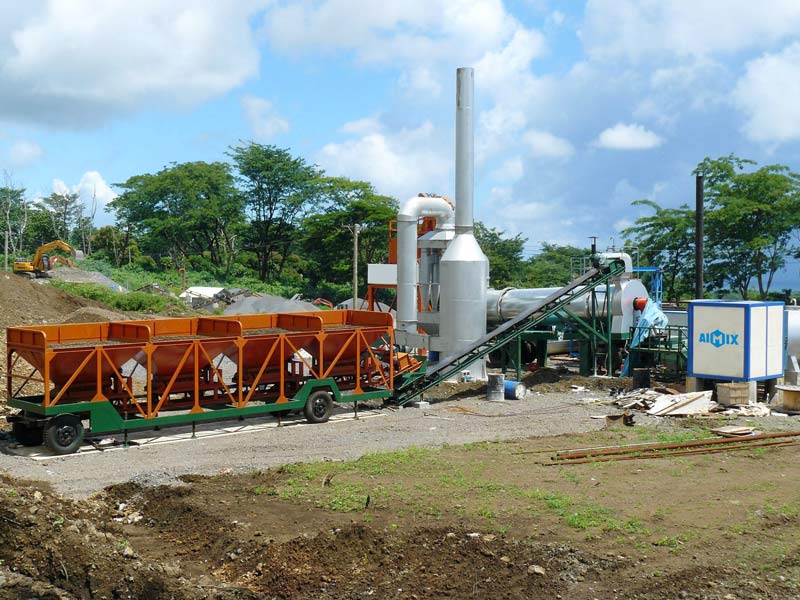3Asphalt plants play a crucial role in road construction and maintenance projects, producing high-quality asphalt mixes that are essential for creating durable and smooth roads. For asphalt plant operators, understanding and following best practices is key to ensuring that the plant operates efficiently, safely, and at optimal capacity. Whether working with a stationary asphalt plant, a mobile asphalt plant, or an intermittent asphalt plant, there are several important practices that should be followed to ensure quality production and minimize operational issues. In this article, we will explore the best practices for asphalt plant operators and offer insights into making the most of asphalt plant(planta de asfalto) technology.

Understanding Different Types of Asphalt Plants
Before diving into the best practices for operators, it’s important to understand the different types of asphalt plants commonly used in construction projects. Each type has its own unique features and operational requirements:
Stationary Asphalt Plant
A stationary asphalt plant is typically used for large-scale projects where a consistent supply of asphalt is needed. These stationary intermittent plants(plantas de asfalto discontinuas) are installed at a fixed location and are designed for high-output production. They require a stable infrastructure and are ideal for projects with long durations.
Mobile Asphalt Plant
A mobile asphalt plant offers flexibility and portability, allowing operators to move the plant to different job sites. These plants are ideal for smaller projects or when multiple locations need asphalt production. Mobile asphalt plants are easy to set up and can be relocated quickly, making them perfect for on-the-go construction projects.

Best Practices for Asphalt Plant Operators
Now that we have a better understanding of the types of asphalt plants, let’s explore the best practices that operators should follow to maximize performance, maintain safety, and improve overall productivity.
1. Regular Maintenance and Inspections
Regular maintenance is vital for ensuring that the asphalt plant runs smoothly and efficiently. Operators should schedule routine inspections to check for wear and tear, including on the conveyor belts, burners, and drying systems. Ensuring that all components are functioning properly will prevent costly breakdowns and minimize downtime. Keeping the plant well-maintained will also extend the lifespan of the equipment.
2. Proper Material Handling
Asphalt plants rely on the proper handling of raw materials such as aggregates, bitumen, and filler materials. Ensuring that these materials are stored, loaded, and handled correctly is crucial for producing high-quality asphalt. Operators should monitor the material storage areas, check for moisture content, and ensure that aggregates are properly sieved and mixed. Proper material handling also helps in maintaining the desired quality of the final asphalt product.
3. Monitoring Temperature and Mixing Times
For optimal asphalt production, temperature control is essential. Asphalt production requires the proper heating of aggregates and bitumen. Operators must monitor and maintain temperatures within the correct range to achieve the desired mix consistency. Additionally, mixing times should be carefully controlled to ensure that the aggregates and bitumen are thoroughly combined. An asphalt plant with automated controls can help operators maintain these variables more efficiently.
4. Quality Control and Testing
To ensure that the asphalt produced meets the required specifications, operators should implement quality control procedures. This includes regularly testing samples of the asphalt mix for consistency, density, and compliance with industry standards. Regular testing will help identify any issues with the mix before it reaches the construction site, ensuring that the final product is of high quality and suitable for road construction.
5. Minimize Emissions and Environmental Impact
Asphalt production can have an environmental impact, especially when it comes to air quality and emissions. Operators should ensure that the mobile asphalt plant(planta de asfalto móvil) is equipped with pollution control systems, such as baghouses, that minimize the release of dust and volatile organic compounds (VOCs). In addition, using recycled materials in the mix, such as reclaimed asphalt pavement (RAP), can help reduce environmental impact and contribute to more sustainable construction practices.
6. Efficient Fuel and Energy Management
Asphalt plants consume significant amounts of energy, particularly in heating and drying processes. Operators should monitor fuel consumption and look for ways to optimize energy use. This might include using more efficient burners, adjusting the plant’s operational settings, or using renewable energy sources. By managing energy consumption efficiently, operators can reduce operating costs and improve the plant’s overall sustainability.
7. Operator Training and Safety
Ensuring that operators are well-trained and knowledgeable is crucial for maintaining safe operations. Operators should undergo regular training on the latest equipment, safety protocols, and emergency procedures. In addition, they should always wear proper personal protective equipment (PPE), such as hard hats, gloves, and safety goggles, to minimize the risk of injury. Creating a culture of safety in the workplace is essential to prevent accidents and maintain a productive environment.
Understanding Asphalt Plant Prices
Asphalt plant prices(Planta de asfalto precio) can vary widely depending on the type, size, and capacity of the plant. A mobile asphalt plant, for example, is generally less expensive than a large stationary plant, but it offers more flexibility and portability. Operators should carefully evaluate the specific needs of their projects and choose an asphalt plant that fits within their budget. Additionally, operators should consider the long-term costs of operation, including maintenance, fuel, and labor, when determining the total cost of ownership.
Conclusion
Asphalt plant operators play a critical role in ensuring that construction projects are completed on time and with high-quality materials. By following best practices, such as regular maintenance, proper material handling, temperature control, and implementing efficient energy management, operators can significantly improve the performance and profitability of their plants. Whether managing a stationary, mobile, or intermittent asphalt plant, operators should focus on safety, quality, and sustainability to contribute to the success of their construction projects.